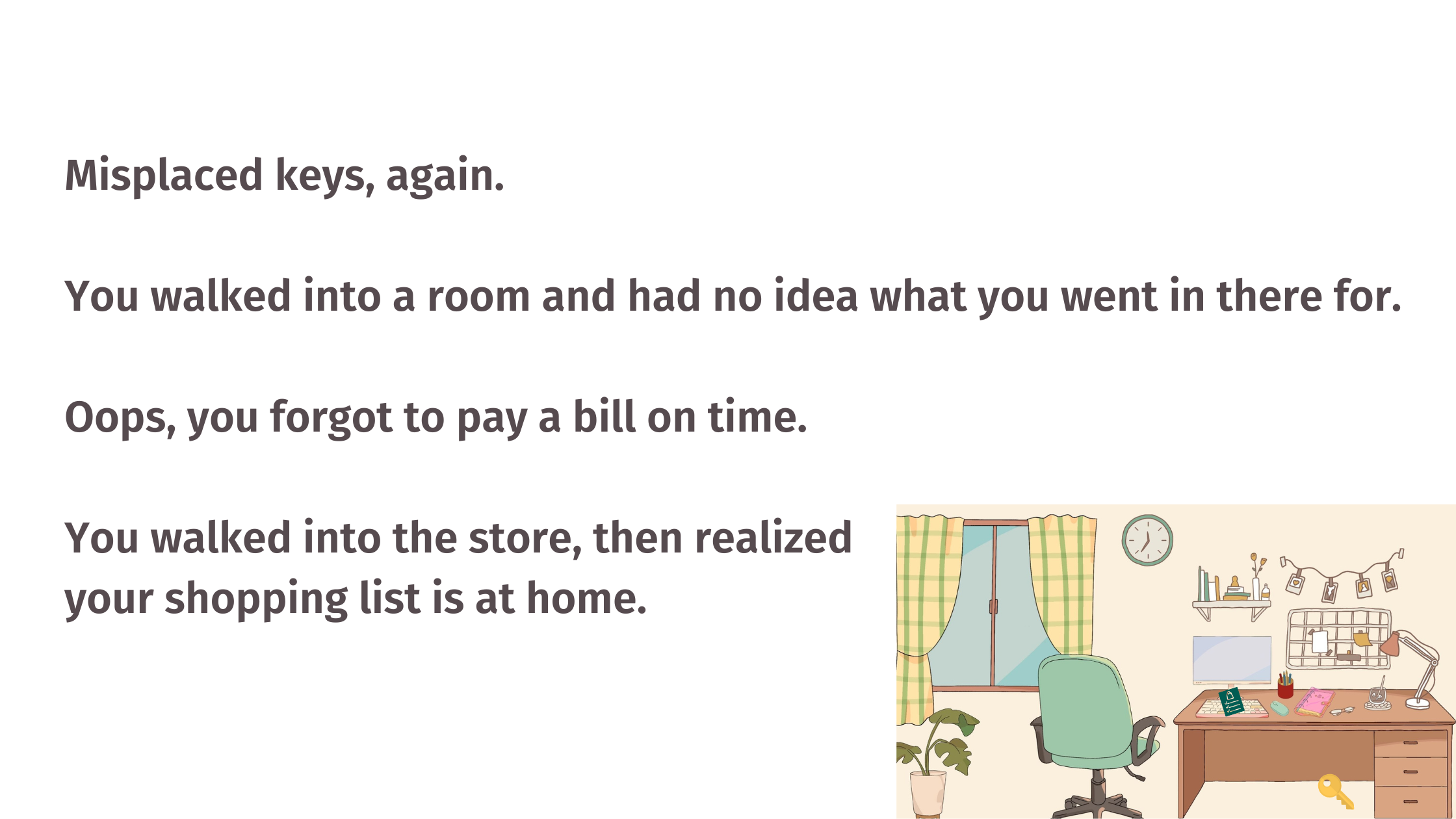Memory Loss: Is this Normal Aging?
Here’s how to tell when your memory loss is cause for concern
Doesn’t everyone forget sometimes? Forgetting things everyone now and then is to be expected. Periods of high stress, grief, depression or lack of sleep can all make it harder to remember things. Also, as a normal part of aging, our memory changes a bit and may not be quite as sharp. But, not all forgetfulness is normal aging.
If my memory is changing because of aging, then what else could cause memory loss symptoms? The following health conditions can cause memory loss:
A non-traumatic brain injury, like a stroke
A traumatic brain injury, from car accident for example
A side effect of chemotherapy
After having a heart attack
Getting really sick from of an infectious disease, like pneumonia
A progressive condition like Multiple Sclerosis
When medical reasons are the cause of memory loss, you don’t have to just live with it. “Is memory loss reversible?” That’s a question I get often. Well, we know from research that memory can be improved if you work at it with good effort. A speech-pathologist experienced in cognitive rehab is your go-to for understanding more about how your memory is doing, and ways to improve it if needed.
Getting back to our burning question: How can I tell if my memory loss is normal? Is my memory loss the same as dementia?
I’m going to provide some loose guidelines on how to do a memory self-checkup. Ask yourself the following questions:
Does anyone in my life notice me having memory difficulties?If you feel like you’re forgetful, but no one else notices, then there is a pretty good chance that your memory is normal.
If you feel like you are forgetful and others notice, then that is a good indicator that it may be time to have your memory looked at.
There is fear that surrounds changes to how we’re thinking and remembering. To have some memory difficulty does not automatically mean that you have dementia. Many people don’t realize that dementia affects a lot more than just memory. Your primary care provider, speech pathologist and sometimes a neuropsychologist all play a role in deciphering what’s behind your memory loss, and what to do about it.
Getting a proper assessment and scope of the problem helps with early intervention. Your team of providers can help figure out whether it’s mild cognitive impairment, whether it’s a form of dementia, or something else. The sooner you address it, the better chance you have at slowing down memory loss– and actually being able to help it.
What are you waiting for? Start the dialogue about your memory checkup today! Bright Speech is here to help you navigate this.

